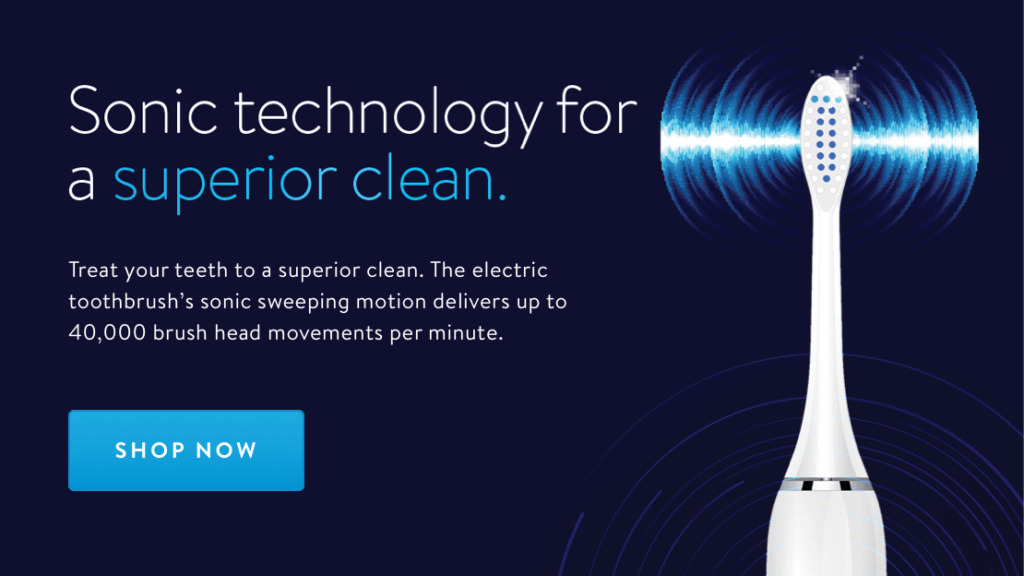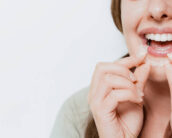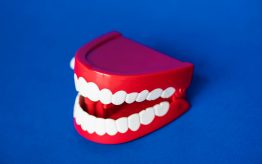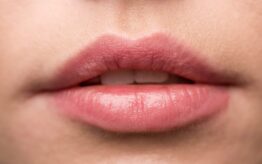When you’re going about your day-to-day, it’s important to smile with confidence. Unfortunately, if you don’t give your smile the care it deserves, it will stand out for all the wrong reasons. It is widely understood in general dentistry circles that you might not need dental veneers to have your teeth looking their best, you just need to look after them. So, today, we’ll share the top ten tips for dental care you can follow. After all, practising good dental care is the best way to avoid stained teeth, tooth decay, tooth extraction, gum disease, oral cancer and other oral health problems.
1) Use your toothbrush
You guessed it. Brushing twice a day is one of the first self-care rules you were taught when little. Often, parents don’t allow their children to go to bed before brushing their teeth—and for good reason. Dentists recommend brushing to ensure your teeth and gums are clean. This is the first line of defence to remove plaque. However, there is more to this basic oral health tip if you want your smile to be at its best.
Finding the right toothbrush can make a huge difference in your dental hygiene. Often, dentists & other oral health practitioners will prefer you to use a toothbrush with very fine or soft bristles. This is so you aren’t too rough on your gums or tooth enamel when cleaning. In addition, if the bristles are finer, you can get rid of the extra food residue and bacteria in those hard-to-reach places between your teeth. In turn, tooth decay won’t likely be an issue.
2) Floss for a healthy smile
We get it, no one likes to floss. It can be uncomfortable cleaning those hard-to-reach places. But if you want to really keep your teeth healthy, flossing is essential. Flossing does away with food residue that your toothbrush can easily miss. Flossing can reduce dental plaque & tooth loss, prevent early gum disease, reduce bad breath, help lower inflammation areas, and lower the risk of serious issues like oral cancer. Simply put, it can boost your oral health.
Flossing daily is truly one of the best dental health tips for adults and children. How soon can you introduce flossing to your child? You can start when your child has two teeth that touch, typically around two to three years old. Kids often require assistance with flossing until they develop the dexterity to do it themselves, usually by ages eight to ten. The important thing is introducing flossing early in life to set the foundation for a lifelong habit of thorough oral care.
3) Eat right
Your teeth are the first point of contact with the food and drink you digest. Watching what you ingest is a strong defence against tooth decay, let alone your overall health. But what should you avoid to maintain good oral health? If you want to hold onto your pearly whites, your dedicated dental professional will recommend you avoid having too many sugary drinks and foods. This could be soft drinks, chocolate, lollies, and ice cream. Sugar can erode your enamel, leaving the yellow nerve-rich dentin of your teeth exposed. This can result in a dull or yellow look. So, keeping sugary treats to a minimum is worth it for a healthy set of teeth.
But it doesn’t just stop at sugar. Coffee and red wine are also effective at staining your pearly whites. Both drinks are highly acidic and have included tannins. This means drinking a lot can damage your enamel, leaving your teeth vulnerable to stains. To help maintain good oral health and bring your teeth to their natural colour, you could drink your red wine or coffee with a straw and rinse your mouth with tap water or mouthwash after each beverage.
4) Get your share of oral health nutrients
Need more dental care tips? Getting your share of calcium and vitamin D is an essential defence for your healthy teeth. To help keep them looking their best, you could drink milk to build up your calcium levels. You could spend some time in the sun to get your healthy dose of vitamin D. A healthy number of dairy products and nuts would also be worth incorporating into your diet for that additional boost of oral health nutrients. This is also good for your general health.
Add crunchy fruits and veggies to your healthy diet, too. These aren’t just nutritious—they’re natural toothbrushes! Munching on apples, carrots, and celery can help clean your teeth, boost saliva production, get those jaw muscles moving, and protect you from gum disease and other serious oral health issues.
5) Seek dental services
Making a habit of seeing your dentist every six months is one of the most important things you could do to maintain your oral health. An appropriately qualified health practitioner can offer you dental care updates on how your teeth are going and whether you need to be doing more.
Going to the dentist can be scary, however, it’s even scarier when it’s for a root canal, cavities, periodontal disease or another surgical or invasive treatment that could have been prevented with good oral hygiene. Getting a general clean every six months is a great way to prevent poor oral health & other long-term issues from dental neglect and save you time from having to go to the dentist down the line.
Freshen up beyond the brush
Beyond brushing and flossing, here are more teeth care tips you can do at home:
- Stay hydrated throughout the day: Drinking water is undeniably essential for overall health. Of course, it’s also great for your oral health. It helps rinse away food particles and bacteria, acting like a natural mouthwash after meals. So, if you’re looking for more teeth care tips at home, drinking lots of water throughout the day, especially after eating, is the easiest tip you can follow.
- Select fluoride toothpaste: Fluoride isn’t just for kids; adults can also benefit from it. It helps strengthen your pearly whites and ward off tooth decay. So, the next time you shop, pick up a fluoride toothpaste instead. It may be a simple change to your routine, but it will benefit your oral health greatly.
- Use tongue scraper: Your tongue can harbour bacteria. So, if you’re searching for more tips for dental hygiene, focus on your tongue, too. Start using a tongue scraper to remove bacteria that brushing alone might have missed. This simple oral health advice will help keep your breath zesty and your mouth clean.
- Add mouthwash to your oral care arsenal: Mouthwash does wonders for oral health. It helps reduce bacteria buildup and even prevent gum disease. Just remember to choose one that’s right for you, as some types and brands can have downsides like staining teeth or irritating gums.
- Care for your smile post-whitening: Did you just have a professional teeth whitening treatment? Avoid eating dark or acidic foods for the first 48 hours. This helps ensure your teeth stay sparkling. If you experience sensitivity, a toothpaste designed for sensitive teeth can provide relief. You can also ask us for more after-care oral health tips to ensure you can take better care of your teeth after having them whitened.
Wrapping up
With these best tips for dental care, you’re well on your way to achieving a healthier, more dazzling smile. At PureSmile, we’re dedicated to helping you get and maintain the smile of your dreams. Keep these pointers in mind, and you’ll be on the path to optimal oral health.






